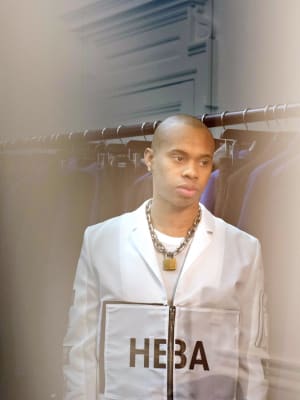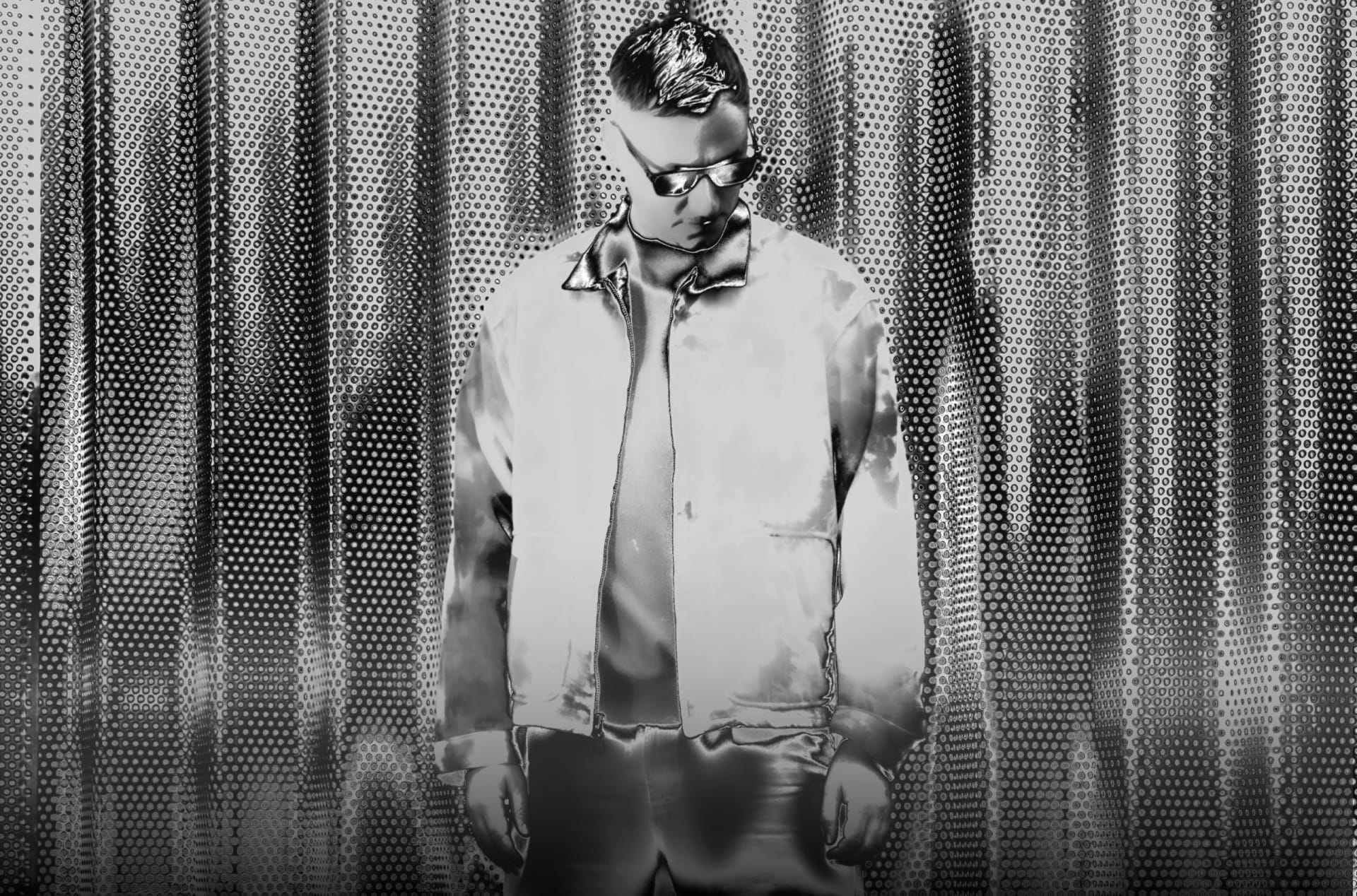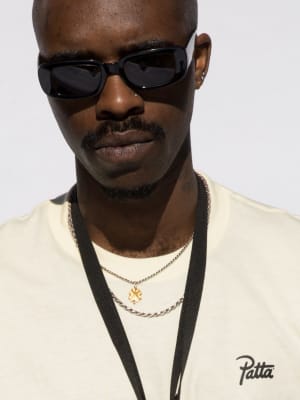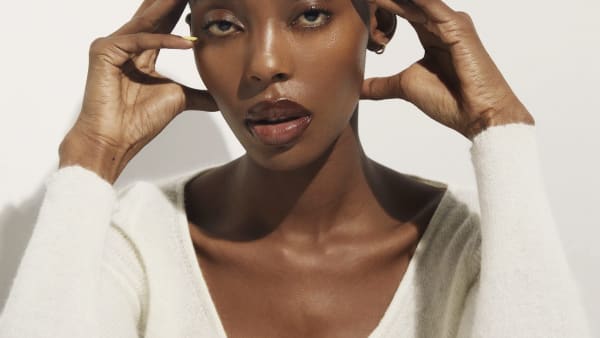

Benji B on Deviation’s Early Days and the Overlap Between Club Culture and the Fashion World
“Runway shows are all about context—all about environment and pace,” the BBC Radio 1 presenter and Louis Vuitton men's music director says. “DJing is knowing when to play the right thing at the right time for how long and why."
If you ask Benji B point blank about his role in mediating underground music and the fashion world’s overlapping matrix, he’ll shirk any major influence. “I’m just a tiny contributing cog,” he claims. Judging by the many hats that he wears, though, you’d be forgiven for expecting otherwise. For the past ten years, he’s helmed the BBC Radio 1 airwaves from midnight to 2AM every Wednesday night (or Thursday morning, really), where he spins everything from Nas to Arca to Theo Parrish. It’s an eclectic sensibility that extends back to his days hosting Deviation, his and Judah’s monthly club night that started in 2007 in the basement of the now-shuttered Gramaphone in East London, and one that the fashion world eagerly embraced—he previously composed the runway soundtracks for Phoebe Philo’s Céline shows before Virgil Abloh asked him to become the music director of Louis Vuitton’s men’s.
This element will show content from various video platforms.
If you load this Content, you accept cookies from external Media.
Thanks to Benji B’s direction, Juan Atkins’ Cybotron performed live at the Louis Vuitton men’s autumn/winter 2020 show at the start of this year. Models wearing Abloh’s designs walked down a runway painted like a blue sky as proto-techno classics like “Clear” and “Alleys of Your Mind” reverberated in the sleek space. It’s a pick that only a true music head would ever think to turn into a reality—the legacy of elite European fashion houses and the origins of Detroit techno aren’t necessarily naturally intertwined—but it’s this sort of decision that’s the true mark of Benji’s interstitial role between the worlds of music and fashion. “I don’t have a major role, but I’m a DJ, and therefore I’m involved in that conversation,” Benji B says. “I guess our role is to play the music that we love and believe in—in all of the environments that we’re in.”
One of the earliest of these environments is Deviation, which he’s now commemorating with a new compilation of the party’s classics, to be released in February of next year. The rotation of a certain set of familiar tracks is a testament to any good club night, stemming back all the way to early Paradise Garage days, when you’d likely hear Patrice Rushen and Loose Joints cuts over the course of a few hours on the dancefloor, and Deviation was no different. Benji held Deviation on Wednesday nights, so only the true heads would come, at a venue that people had to explicitly seek out. Flying Lotus and Sam Shepherd (A.K.A. Floating Points) played at the start of their careers, and Benji remembers Shepherd coming up to him at the club and giving him a CD-R with his MySpace address (myspace.com/floatingpoints) handwritten across the front of the jewel case. “Love Me Like This” was included on that CD-R, but it was so short that Benji had to loop it over and over on the CDJs to play it at Deviation. “There’s a lot of records that have their own stories at the night,” he says.
Deviation Classics is a time capsule of the party’s early years, back before dancers numbered in the thousands and before it became a proper sound system at Carnival. “It’s really a nod to the fact that a lot of the best club nights make their own anthems,” Benji says. “They make their own hits, and those hits aren’t necessarily the hits outside of the club.” Deviation’s classics are broad in scope, including the likes of Carl Craig’s light-footed “Sandstorm” (Benji describes it as a “massive choon”) and Joy Orbison’s modern classic “Hyph Mngo.”
The records that made it into this final rolodex were as much dictated by the people at the party as they are by the DJ. Some of the classics got an immediate response from the crowd, but others were more of a slow burn. Some are songs that Benji just kept playing, month in and month out, until something clicked and they became a part of the greater sonic fabric of the night.






Deviation Classics’ tracklist is almost as varied as the lineup of artists who’ve performed or played at Deviation since the beginning. Benji included the names of each and every one of the night’s performers in the new compilation’s liner notes, and reading through it in its entirety is almost staggering: It’s hard to imagine A$AP Rocky, Erykah Badu, Josey Rebelle, Goldie, Maurice Fulton, Metro Boomin, and Moodymann each working their individual magic in the same space at different times over the years to a set of Deviation dancefloor regulars.
For Benji, the creative thrust of booking and curating these nights isn’t all that different from composing a runway soundtrack—it’s just a tempering of contexts. “Runway shows are all about context—all about environment and pace,” Benji describes. “DJing is knowing when to play the right thing at the right time for how long and why,” he says, and these same dynamics are at play when trying to compose something for a live runway show.
'It was a phenomenal goosebumps moment where you could feel the tectonic plates shift,' he says.
Abloh’s first Louis Vuitton presentation, which featured a rainbow runway and a live performance from BADBADNOTGOOD, was a standout collaborative moment for Benji. “It was a phenomenal goosebumps moment where you could feel the tectonic plates shift,” he says. Another highlight was his work with the Heritage Orchestra last summer for Louis Vuitton’s spring/summer 2020 collection, wherein he approached the whole range of an orchestra’s sounds with a DJ’s ear. “I DJ’d an orchestra effectively—I put together a collection of songs, did arrangements of songs, and then literally DJ’d the orchestra. I spent three days with them experimenting going from one song to another. “At first they were like, ‘What the hell is this?’ About halfway through it, they loved it,” he says. “Every single one that we’ve done live has been special in a different way—BADBADNOTGOOD, Dev Hynes, the orchestra, inviting the architect, Juan Atkins,” he says. “Don’t give me that job, ‘cuz I’ll be doing stuff like that—inviting Cybotron to come and play at a Louis Vuitton show in Paris. It’s not completely expected,” he acknowledges.
Even in the early Deviation days, fashion played a role in solidifying the vibe, whether Benji really knew it or not. Looking back at some of the old photos from the Deviation’s beginnings, Benji winces at some of his so-called fashion disasters, but these are as much a time capsule of those early nights as the compilation itself; clubs and fashion have always been inextricably linked. “If someone says Hacienda to me, I can picture the bucket hat and polo shirt. I can see what the kids are wearing before I’m even thinking about what acid house track they’re listening to, and the same thing is true of the Paradise Garage, Danceteria, or Metalheadz,” he says. “I think the reason that it’s interesting to look at clubbing and fashion is that when people talk to you about a club, you think about what people are wearing as much as what they’re listening to.”
Rachel Hahn is a writer based in New York. She writes frequently about music, art, and fashion.
Photography by Moritz Tibes.
Art Direction by Ekaterina Kachavina.
Published November 23, 2020. Words by Rachel Hahn.










Follow @electronicbeats